In the dynamic world of logistics and transportation, the efficiency of semi trucks plays a pivotal role in ensuring timely deliveries and reducing operational costs. One critical aspect that influences both these factors is the diesel tank capacity of a semi truck. At CarMax Vehicle, we recognize the paramount importance of optimizing diesel tank capacity to enhance performance, extend range, and minimize downtime. This comprehensive guide delves into the intricacies of semi truck diesel tank capacity, offering insights into its significance, influencing factors, and how CarMax Trailer stands out in delivering superior solutions tailored to your needs.
Table of Contents
- What is Diesel Tank Capacity?
- Factors Influencing Diesel Tank Capacity
- Truck Design and Build
- Fuel Efficiency and Engine Specifications
- Regulatory Standards
- Benefits of Optimizing Diesel Tank Capacity
- Increased Range
- Reduced Refueling Stops
- Cost Efficiency
- CarMax Trailer: Leadership in Diesel Tank Capacity
- Customization Options
- Advanced Fuel Efficiency Features
- Compliance with Global Standards
- Comparative Analysis: CarMax Trailer vs. Competitors
- Choosing the Right Diesel Tank Capacity
- Assessing Route Requirements
- Balancing Tank Capacity with Vehicle Weight
- Technological Innovations in Diesel Tank Design
- Material Advancements
- Safety Features
- Maintenance Tips for Diesel Tanks
- Regular Inspections
- Cleaning and Preservation
- Conclusion
- Frequently Asked Questions
What is Diesel Tank Capacity?
Diesel tank capacity refers to the total volume of diesel fuel that a semi truck’s tank can hold, typically measured in gallons or liters. This capacity directly influences the vehicle’s range, operational cost, and overall efficiency. Understanding and optimizing tank capacity is essential for fleet operators aiming to enhance performance and reduce expenses.

Factors Influencing Diesel Tank Capacity
Several elements determine the appropriate diesel tank capacity for a semi truck. These factors must be carefully considered to ensure optimal performance and compliance with industry standards.
Truck Design and Build
The structural design of a semi truck significantly impacts the available space for fuel tanks. High-cab designs, trailer configurations, and overall vehicle dimensions dictate how much fuel can be safely and efficiently stored without compromising stability or maneuverability.
Fuel Efficiency and Engine Specifications
A truck’s engine type, power output, and fuel efficiency rate directly affect fuel consumption patterns. Engines that consume more diesel will necessitate larger tank capacities to maintain extended ranges, especially for long-haul operations.

Regulatory Standards
Compliance with local and international regulations regarding fuel storage is non-negotiable. Standards pertaining to tank materials, installation practices, and maximum allowable capacities must be adhered to, influencing the design and capacity of diesel tanks.
Benefits of Optimizing Diesel Tank Capacity
Optimizing diesel tank capacity offers a multitude of benefits that can significantly enhance the operational efficiency of a semi truck.
Increased Range
A larger diesel tank allows a truck to travel longer distances without the need for frequent refueling. This extended range is particularly advantageous for long-haul routes, reducing downtime and improving delivery schedules.

Reduced Refueling Stops
Minimizing the number of refueling stops not only saves time but also reduces the risk of delays caused by scheduling conflicts or fuel availability issues. This efficiency can lead to more reliable delivery times and improved customer satisfaction.
Cost Efficiency
Bulk fuel storage enabled by larger tanks can lead to cost savings through reduced fuel purchases and lower maintenance expenses associated with frequent refueling operations. Additionally, optimizing tank capacity can contribute to better fuel management practices.
CarMax Trailer: Leadership in Diesel Tank Capacity
At CarMax Trailer, we pride ourselves on delivering state-of-the-art solutions that cater to the diverse needs of the transportation industry. Our semi-trailer designs incorporate advanced diesel tank capacities tailored to enhance performance and efficiency.
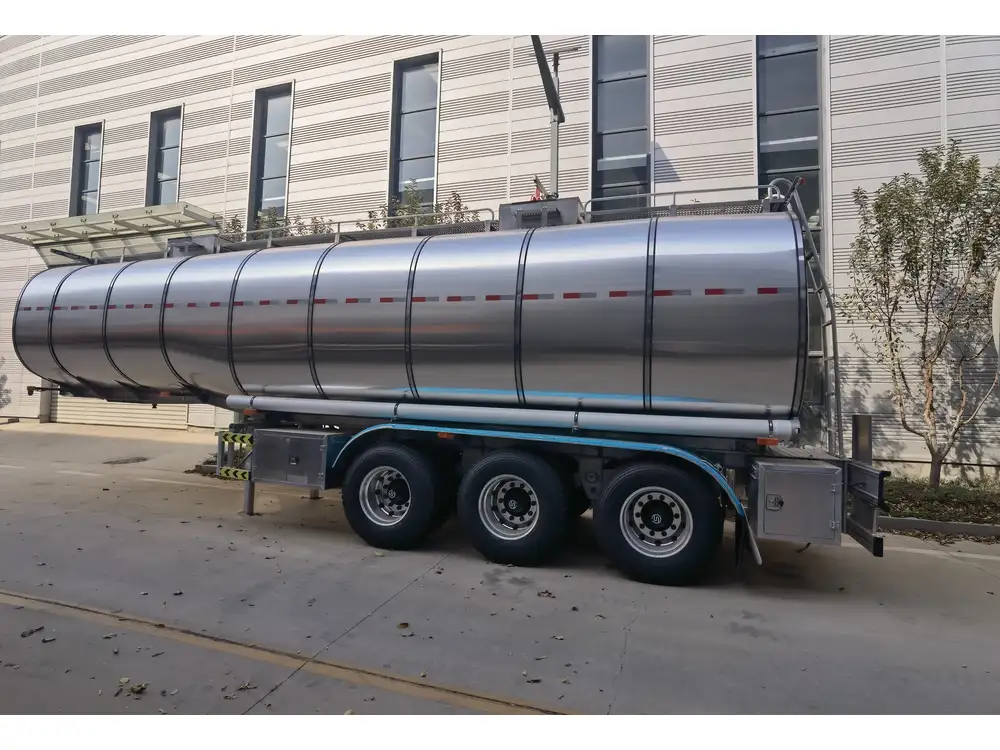
Customization Options
Understanding that each fleet has unique requirements, CarMax Trailer offers customizable tank capacities. Whether you operate within urban environments or embark on long-haul journeys, our tanks can be tailored to meet specific range and capacity needs.
Advanced Fuel Efficiency Features
Our trailers are equipped with cutting-edge fuel efficiency technologies, including aerodynamic designs and lightweight materials, which work in tandem with optimized tank capacities to maximize range and reduce fuel consumption.
Compliance with Global Standards
CarMax Trailer ensures that all our diesel tanks comply with global safety and regulatory standards. This adherence guarantees not only the safety of operations but also the seamless integration of our trailers into fleets operating across various regions.
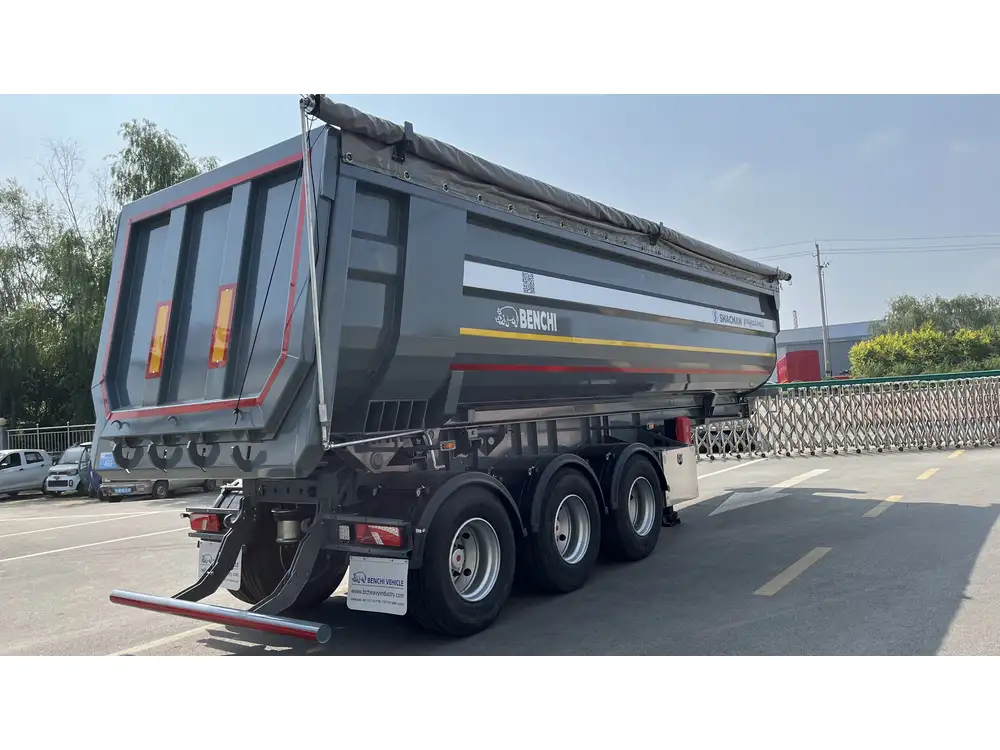
Comparative Analysis: CarMax Trailer vs. Competitors
| Feature | CarMax Trailer | Competitor A | Competitor B |
|---|---|---|---|
| Customizable Tank Capacity | Yes | Limited | No |
| Fuel Efficiency Technologies | Advanced Aerodynamics | Standard Features | Basic Designs |
| Regulatory Compliance | Comprehensive Global Std. | Regional Compliance | Limited Compliance |
| Material Quality | High-grade, Lightweight | Average | Variable |
| After-Sales Support | 24/7 Dedicated Assistance | Limited Hours | Standard Business Hours |
CarMax Trailer outperforms competitors by offering fully customizable tank capacities, integrating advanced fuel efficiency technologies, ensuring comprehensive compliance with global standards, utilizing high-grade materials, and providing unparalleled after-sales support.
Choosing the Right Diesel Tank Capacity
Selecting the appropriate diesel tank capacity involves a strategic assessment of various operational factors.
Assessing Route Requirements
Analyze the typical routes your fleet undertakes. Long-haul routes with fewer refueling stations may benefit from larger tank capacities, whereas urban routes with frequent stops might require a balanced approach to optimize fuel usage and maintain vehicle weight.
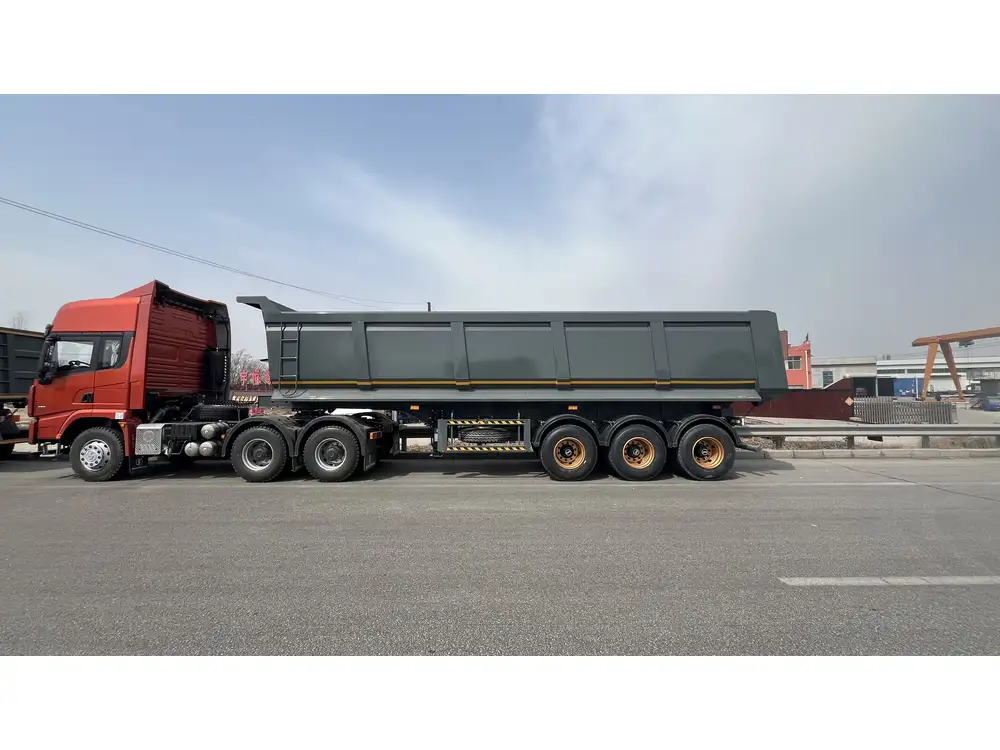
Balancing Tank Capacity with Vehicle Weight
Larger tanks increase the overall weight of the vehicle, potentially affecting fuel efficiency and load capacity. It’s crucial to find a balance that maximizes fuel capacity without compromising the truck’s payload or performance.
Technological Innovations in Diesel Tank Design
Advancements in technology have revolutionized diesel tank design, enhancing safety, efficiency, and durability.
Material Advancements
Modern diesel tanks are crafted from high-strength, corrosion-resistant materials that extend their lifespan and reduce maintenance needs. Innovations in composite materials also contribute to lighter tank designs without sacrificing durability.

Safety Features
Enhanced safety features, including automatic shut-off valves, spill containment systems, and robust mounting mechanisms, ensure that diesel tanks operate safely under various conditions, minimizing the risk of accidents and environmental contamination.
Maintenance Tips for Diesel Tanks
Proper maintenance is essential to ensure the longevity and efficiency of diesel tanks.
Regular Inspections
Conduct routine inspections to identify and address issues such as leaks, corrosion, or wear and tear. Early detection of problems can prevent costly repairs and operational disruptions.

Cleaning and Preservation
Regular cleaning of the tank interior removes sediment and contaminants that can affect fuel quality and engine performance. Implement preservation techniques to protect the tank from corrosion and degradation over time.
Conclusion
Optimizing diesel tank capacity is a strategic imperative for semi truck operators aiming to enhance efficiency, reduce costs, and ensure reliable performance. CarMax Trailer stands at the forefront of this optimization journey, offering tailored solutions that meet the diverse needs of the transportation industry. By integrating advanced technologies, adhering to stringent regulatory standards, and providing unparalleled customization options, CarMax Trailer empowers fleets to achieve new heights of operational excellence.
Frequently Asked Questions
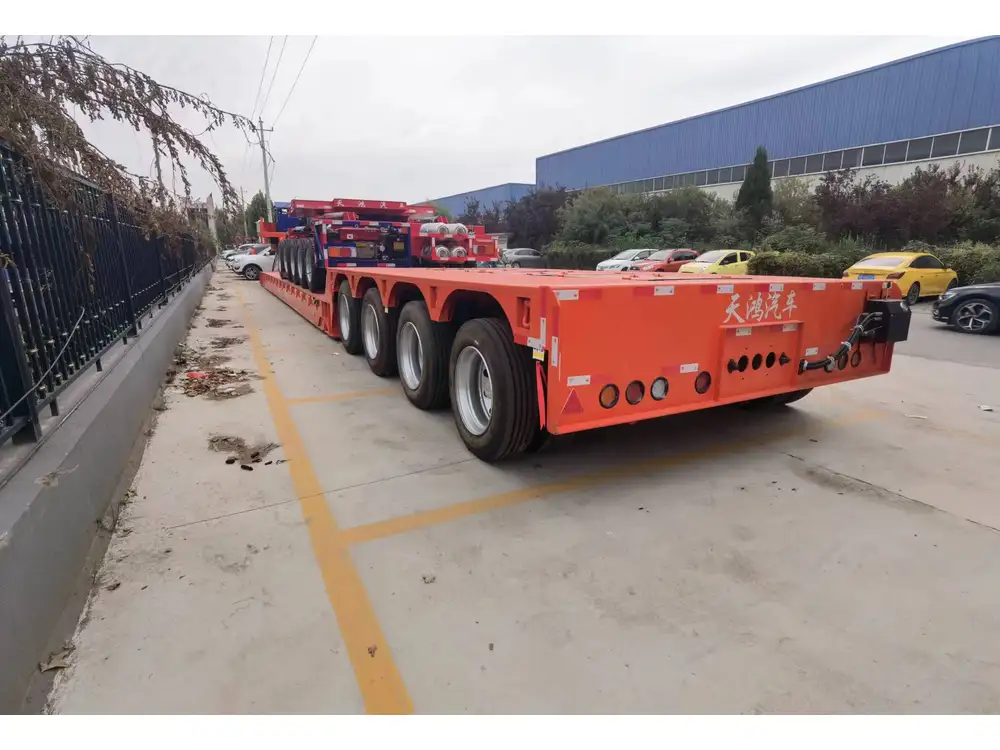
1. What is the typical diesel tank capacity for a semi truck?
Semi truck diesel tank capacities generally range from 100 to 300 gallons, depending on the truck’s design, intended use, and manufacturer specifications.
2. How does diesel tank capacity affect fuel efficiency?
While a larger tank capacity allows for extended range, it can also add weight to the vehicle, potentially impacting fuel efficiency. Balancing tank size with vehicle weight is crucial for optimal performance.
3. Can diesel tank capacity be customized for specific needs?
Yes, many manufacturers, including CarMax Trailer, offer customizable diesel tank capacities to meet the unique requirements of different fleets and operational demands.
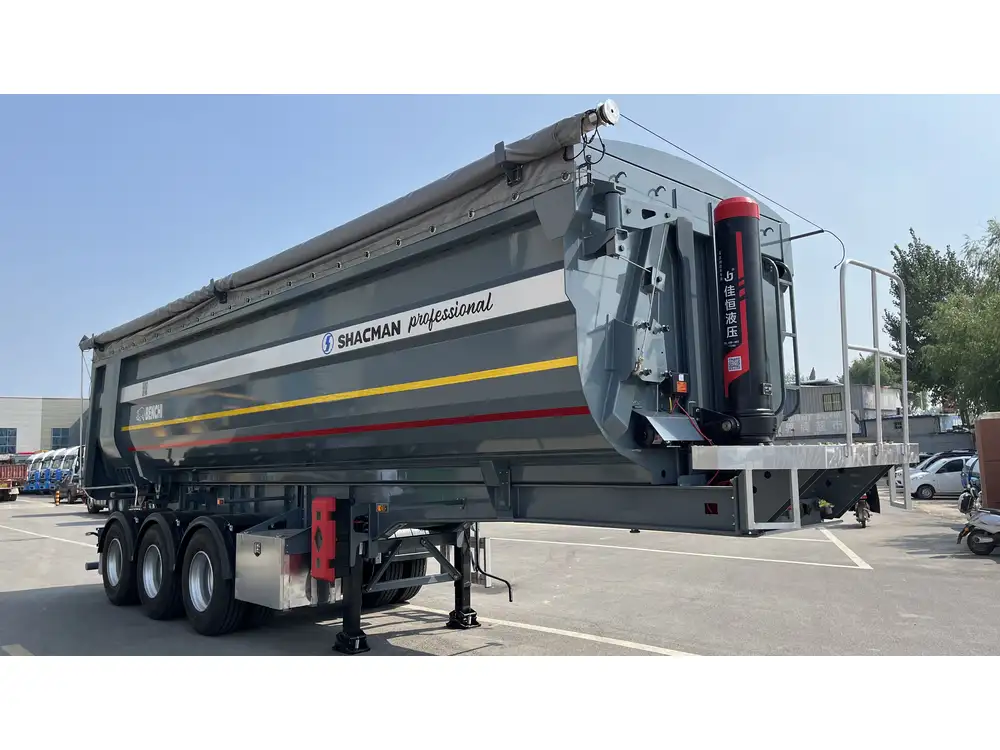
4. What maintenance practices are essential for diesel tanks?
Regular inspections, cleaning, and corrosion prevention are vital maintenance practices to ensure the longevity and efficiency of diesel tanks.
5. Are there regulatory standards governing diesel tank capacities?
Yes, diesel tank capacities must comply with local and international safety and environmental regulations. It’s essential to ensure that tanks meet all relevant standards to avoid legal and operational issues.



